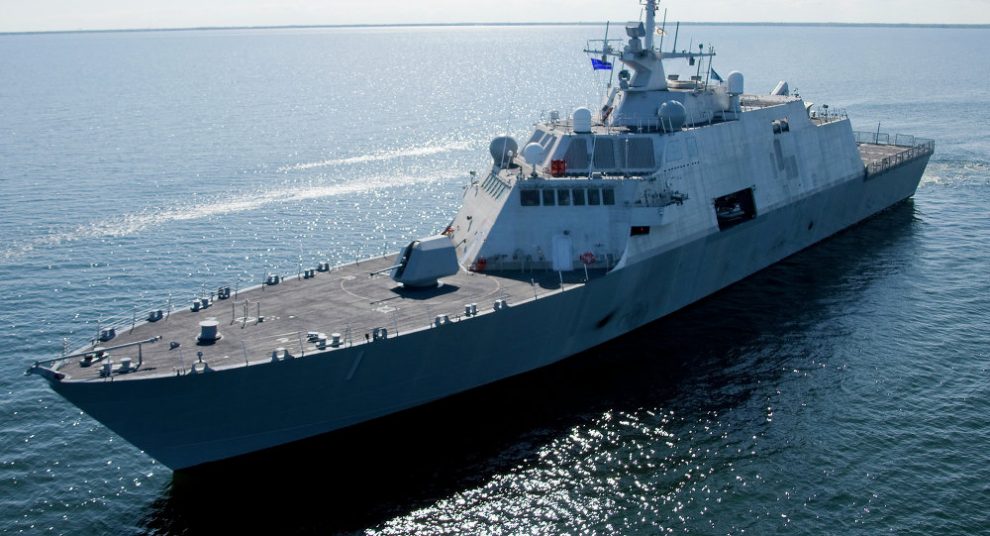Looming Cyber War?
June 12, 2018 | Expert Insights

Chinese government hackers compromised a US Navy contractor’s computers, accessing 614 gigabytes of sensitive data on undersea warfare according to a report by the Washington Post on 8th June.
Unnamed US officials claim the attacks took place in January and February of 2018.
Background
The modern history of naval warfare was accentuated at the turn of the 20th century. The Cold War era led to massive buildup of US and Soviet naval capabilities, but the disintegration of the Soviet Union left US with the most advance Navy in the world. China has since attempted to build up an equally formidable force at sea.
The Naval Sea Systems Command of the Naval Undersea Warfare Center (NUWC) in Newport, Rhode Island has been researching and developing for submarines, autonomous underwater systems, and offensive and defensive weapons systems associated with undersea warfare. It is also acts as a fleet support center.
Private military contractors have become indispensable to the US military since the Vietnam War. Advanced technology and standard soldiers required the assistance of civilian contractors with specialized skills. Now, retired military personnel finding it hard to gain employment after years of service abroad turn to private entities servicing the US army. Brookings Institute estimates that for every ten military personnel involved in the Iraq war, a contractor was there to maintain equipment or work for the military in some other capacity; because of security concerns, almost every single one is from a NATO country. These incentivized contractors are neither subject to government scrutiny nor do they fall under the ambit of International Law.
In September 2015, in a bid to avert economic sanctions, Chinese President Xi Jinping pledged to President Barack Obama that China would refrain from conducting commercial cyberespionage against the United States. China appeared to have curtailed much, although not all, of its hacking activity against US firms; however, they both consider spying on military technology to fall outside the pact.
Chinese officials have been accused of theft of data regarding the F-35, Patriot PAC-3 missile system and the Terminal High Altitude Area Defense system. Recently, Rockwell Hansen and Jerry Shun Chi Ling have been arrested for selling classified data to China. Read more here.
Analysis
The hack took place on a declassified network, however, the data when aggregated can be considered classified, according to the unnamed officials speaking to the Washington Post. 614 gigabytes of material relating to a closely held project known as Sea Dragon, as well as signals and sensor data, submarine radio room information relating to cryptographic systems, and the Navy submarine development unit’s electronic warfare library were taken during the hack.
The Defense Department, citing classification levels, has released little information about Sea Dragon other than to say that it will introduce a “disruptive offensive capability” by “integrating an existing weapon system with an existing Navy platform.” They have requested $300 million since 2015 for the project to fit supersonic missiles onto submarines making it harder for the Chinese to deflect any such attack.
Signal and sensor data provides information on when and at what distance the US can detect foreign submarines. Furthermore, theft of cryptographic systems will make it easier for Chinese systems to decrypt classified codes and predict future attacks with ease. The creation of secure cryptographic codes is a long and arduous process which the US might have to restart in lieu of this attack.
“One of the main concerns that we have,” Admiral Philip S. Davidson told the Senate Armed Services Committee, “is cyber and penetration of the dot-com networks, exploiting technology from our defense contractors, in some instances.”
Investigators say the hack was carried out by the Chinese Ministry of State Security (MSS), a civilian spy agency responsible for counterintelligence, foreign intelligence and domestic political security, according to the Washington Post. The Chinese Communist Party decided to reform intelligence services by 2018, including the MSS into a two-part body: one for monitoring spies in China and another for gathering intelligence overseas. The MSS's foreign intelligence role was complicated by the preference of successive Chinese leaders for using the PLA for foreign intelligence. Some see restructuring of the ministry as Xi's attempt to strengthen his grip on the organization, but the intelligence services are fiercely independent.
With increasing threats in the South China Sea, coupled with the upcoming Trump-Kim Summit in Singapore, China’s predominant role cannot be ignored. Access to sensitive data concerning underwater warfare will invariably affect the nature of war as the elements of innovative technology and surprise are secondary to another country’s capacity to steal that information.
Assessment
Our assessment is that the data could give the Chinese a reasonable idea of the depth of knowledge that the US have about their specific radar platforms, both electronically and acoustically. We believe that this will significantly reduce major technological advantage that the US may have had in case of an undersea combat with China. We feel that the Chinese will be better equipped to detect US submarines at a distance.








Comments